 The messenger is the message. If a professor delivers a message, it tends to sound objective, studied and evidence-based. If an elder statesman delivers a message, it tends to sound thoughtful, even-handed and rational. If a reporter of a credible news outlet delivers a message, it tends to sound legitimate, consequential, and relevant.
The messenger is the message. If a professor delivers a message, it tends to sound objective, studied and evidence-based. If an elder statesman delivers a message, it tends to sound thoughtful, even-handed and rational. If a reporter of a credible news outlet delivers a message, it tends to sound legitimate, consequential, and relevant.
And if a political party leader delivers a message, it tends to sound one-sided, hyperbolic, manipulative and, obviously, political.
Maybe that is not always fair, but the messenger delivering the argument profoundly shapes how the audience processes the messages that are presented.
This is hardly a novel observation, yet it seems completely lost on Minnesota’s major party leaders. Often when political party leaders weigh in on an emerging issue, they inadvertently leave a slimy residue behind. The message becomes “this is a political game being played, not a legitimate issue.” At a time when survey research shows that a strong majority of Americans have an unfavorable view of both major political parties, pointing the spotlight to a partisan messenger can be the PR kiss of death.
Take the issue of whether or not two Minnesota state legislators should apologize to a suburban law enforcement officer. The legislators initially called the officer a liar when the officer reported that the legislators were doing something in a suburban park that was a bit more intimate than the claimed “exchanging documents.” The teen term of art “makeout” was used in the officer’s report, and, to the delight of the incurable gossips who inhabit the State Capitol campus, more racy details were included.
Subsequent news accounts reported that the officer documented the salacious details of the incident via email in near real time. Faced with this new reporting, the legislators in question reversed course. As the Associated Press reported:
Two Republican lawmakers whom a park ranger cited for making out in a public park apologized Monday for accusing that ranger of lying and stepped down from a Minnesota House ethics panel in an apparent effort to head off a complaint from Democrats.
But that wasn’t good enough for DFL party officials. Two days after the legislators had already apologized and resigned from the House Ethics Committee, the DFL called a news conference to ask the legislators to, I don’t know, issue a new and improved apology.
With reporters and law enforcement officials exposing the truth, and reporters continually seeking legislators’ reaction to each new revelation, why do DFL PR people feel the need pile on with self-righteous sermons? I’m sure partisan warriors surrounding DFL leaders were giving them high fives for continuing to criticize the Republicans, but their partisan finger wagging is starting to make the whole issue look like just another partisan pissing match, which many Minnesotans are conditioned to tune out.
In public relations, as in health care, the guiding credo should be primum non nocere, Latin for “first, do no harm.” Party messengers especially need to realize the harm that their tainted voices can do. Or as the country music classic put it, sometimes “you say it best when you say nothing at all.”


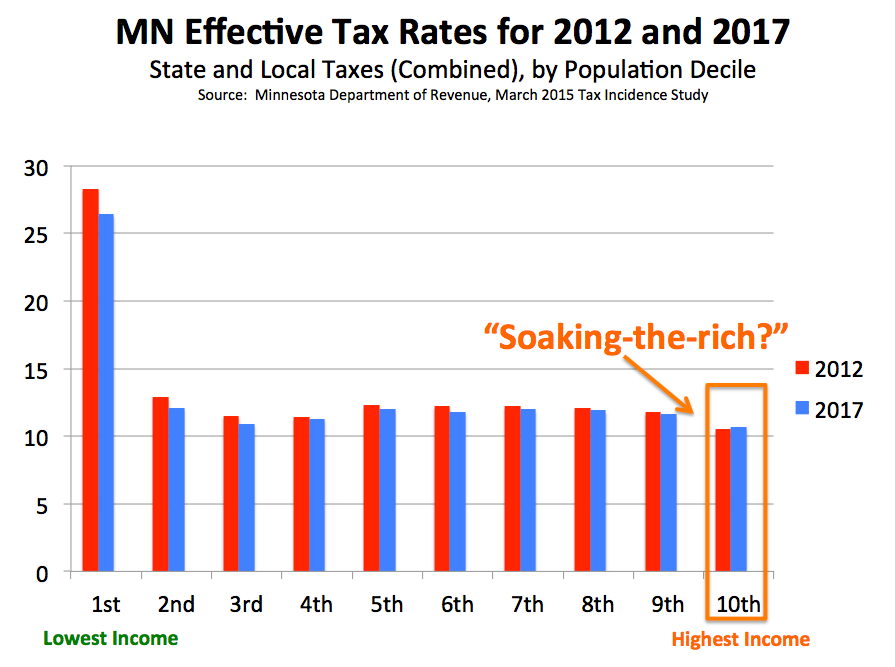
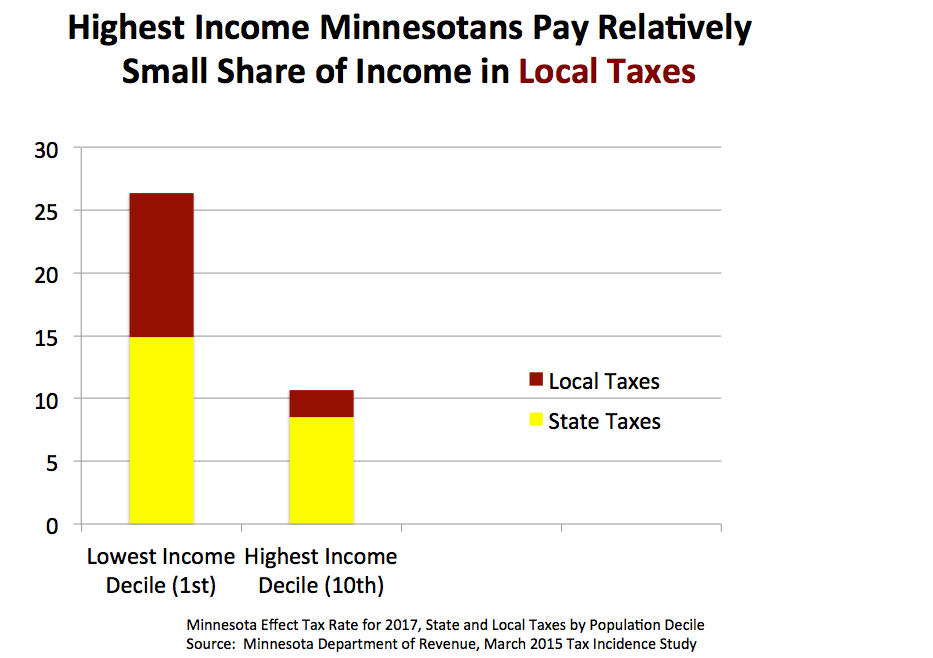 This is a point that is frequently missed, or intentionally ignored, by people who focus solely on state tax burdens, without also taking local tax burdens into consideration.
This is a point that is frequently missed, or intentionally ignored, by people who focus solely on state tax burdens, without also taking local tax burdens into consideration. Perham, Minnesota — Investigative reporters at WCCO-TV are rumored to be about to air a major exposé involving Perham, Minnesota, a town of roughly 3,000 residents in west central Minnesota’s Otter Tail County.
Perham, Minnesota — Investigative reporters at WCCO-TV are rumored to be about to air a major exposé involving Perham, Minnesota, a town of roughly 3,000 residents in west central Minnesota’s Otter Tail County. Here’s why: Walker’s logic path quickly collapses as soon as you start connecting the dots.
Here’s why: Walker’s logic path quickly collapses as soon as you start connecting the dots.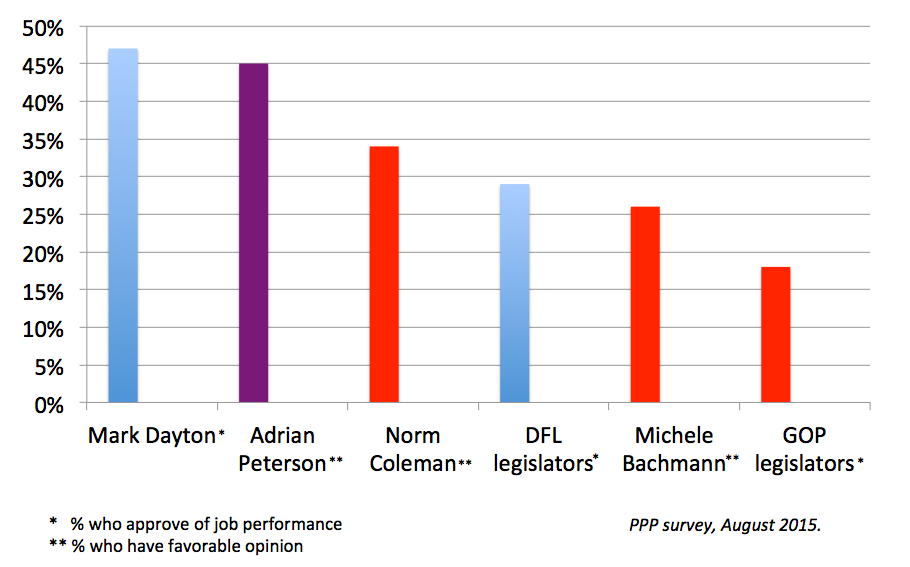
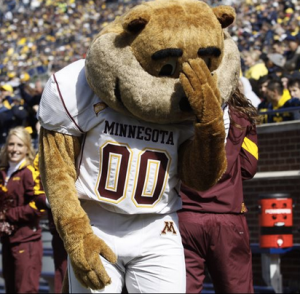 In the wake of University of Minnesota Athletic Director Norwood Teague’s resignation due to sexual harassment of University employees, the University’s PR team is getting glowing marks for the work they did on crisis communications management.
In the wake of University of Minnesota Athletic Director Norwood Teague’s resignation due to sexual harassment of University employees, the University’s PR team is getting glowing marks for the work they did on crisis communications management.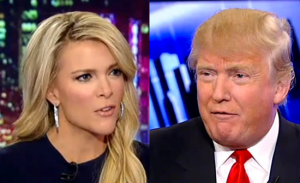 So, Donald Trump
So, Donald Trump  The antics of Republican members of the Minnesota State Legislature used to be a
The antics of Republican members of the Minnesota State Legislature used to be a 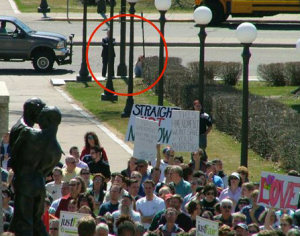 But to my knowledge, there were no legislators
But to my knowledge, there were no legislators 

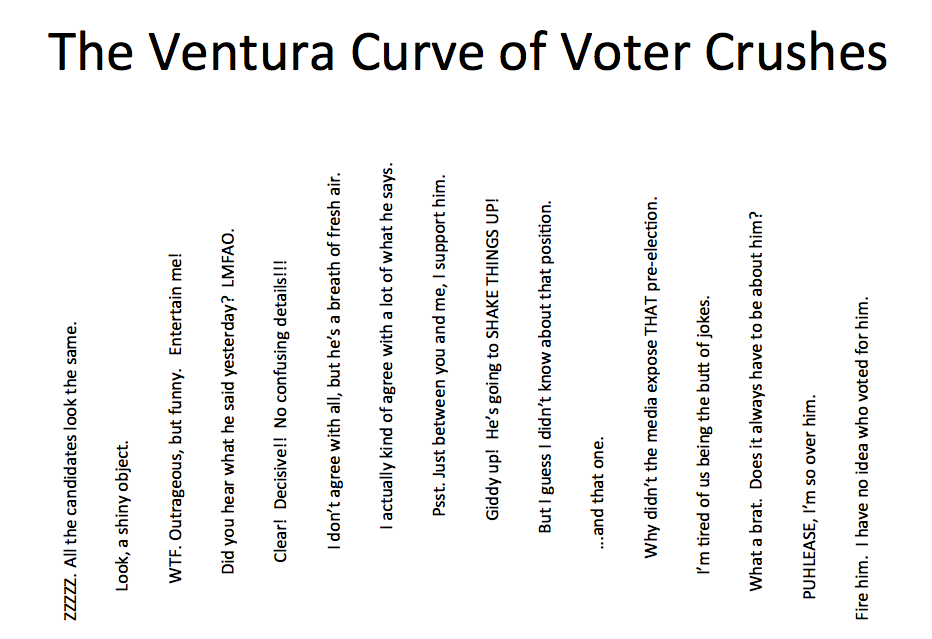
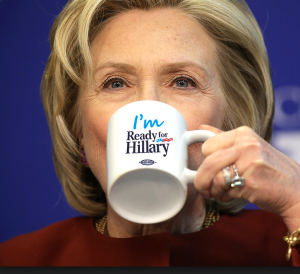 A lot of liberals I know are privately not all that sure if they are “Ready for Hillary,” as the Clinton boosters put it.
A lot of liberals I know are privately not all that sure if they are “Ready for Hillary,” as the Clinton boosters put it. Become a member of our dynamic Minnesota House of Representatives team! We are seeking candidates with deep professional experience, strong educational background, extensive community ties, impeccable personal ethics and morals, outstanding interpersonal skills, uncommon diplomatic acumen, stellar leadership qualities, deep policy expertise in several different areas, and a highly photogenic family. Come associate your good name with an organization that has the approval of a historically low
Become a member of our dynamic Minnesota House of Representatives team! We are seeking candidates with deep professional experience, strong educational background, extensive community ties, impeccable personal ethics and morals, outstanding interpersonal skills, uncommon diplomatic acumen, stellar leadership qualities, deep policy expertise in several different areas, and a highly photogenic family. Come associate your good name with an organization that has the approval of a historically low 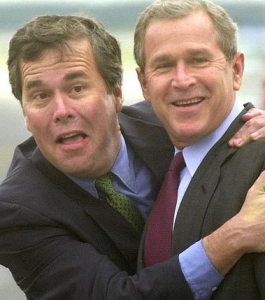 Prior to the Trump surge, Jeb Bush was being compared to his brother former-President George W. Bush, and he wasn’t managing that comparison well. He was
Prior to the Trump surge, Jeb Bush was being compared to his brother former-President George W. Bush, and he wasn’t managing that comparison well. He was 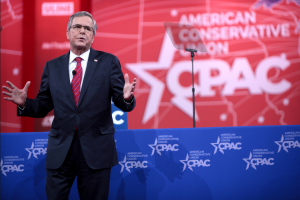 This is hardly a Republican “moderate” in the tradition of other Republican Presidents, such as Theodore Roosevelt, who was pro-union and anti-corporate monopoly, Dwight Eisenhower, who spent heavily on government-funded infrastructure and warned us about the military-industrial complex, or Richard Nixon, who created the Environmental Protection Agency and worked with Teddy Kennedy on a more generous version of Obamacare. Those are Republican moderates, not Jeb Bush.
This is hardly a Republican “moderate” in the tradition of other Republican Presidents, such as Theodore Roosevelt, who was pro-union and anti-corporate monopoly, Dwight Eisenhower, who spent heavily on government-funded infrastructure and warned us about the military-industrial complex, or Richard Nixon, who created the Environmental Protection Agency and worked with Teddy Kennedy on a more generous version of Obamacare. Those are Republican moderates, not Jeb Bush.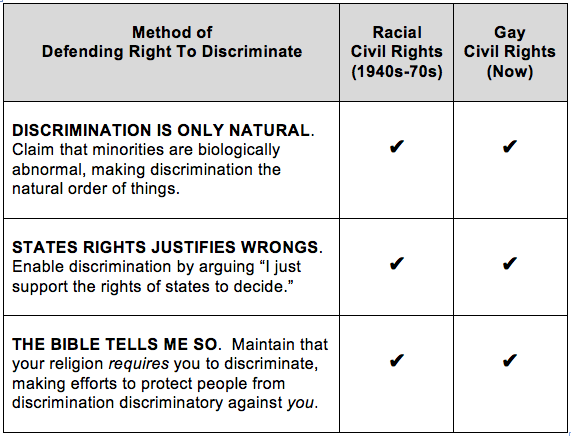
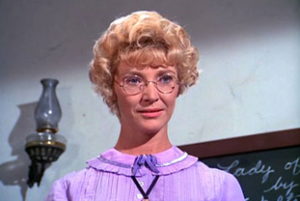 As a case study, consider how the left often treats teachers. Listening to Democrats talk about teachers, you would think that every last one of them is a cross between saintly Miss Beadle from the television series Little House on the Prairie series and life-changing John Keating from the film Dead Poet’s Society. Anyone who has spent time in the public school system understands that the reality is more complicated. Teacher quality ranges the full gamut from excellent to poor, as is the case with every profession on the planet.
As a case study, consider how the left often treats teachers. Listening to Democrats talk about teachers, you would think that every last one of them is a cross between saintly Miss Beadle from the television series Little House on the Prairie series and life-changing John Keating from the film Dead Poet’s Society. Anyone who has spent time in the public school system understands that the reality is more complicated. Teacher quality ranges the full gamut from excellent to poor, as is the case with every profession on the planet.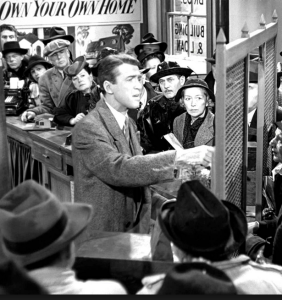 Republicans also have many Untouchables that they fail to regulate responsibly. Listening to the right talk about business people, or ”job creators” as their PR gurus
Republicans also have many Untouchables that they fail to regulate responsibly. Listening to the right talk about business people, or ”job creators” as their PR gurus 
 It’s bad enough that U.S. Bank looks to be getting more
It’s bad enough that U.S. Bank looks to be getting more 
 #4. Toddler fans screaming for entrails during fights. Fist fights happen in other sports, but in other sports they are greeted with immediate league expulsion, stern sportscaster condemnation and the vast majority of fans sadly shaking their heads. But in hockey, bloody fist fights are greeted with bored referees picking up teeth instead of breaking up the fight, and fans of all ages enthusiastically jumping to their feet to cheer for maximum bloodshed. Though starting a fight results in penalty box time that would seem to weaken your team’s chance of winning, it is still universally celebrated in hockey culture as being savvy and heroic. It’s not that I’m too pure for violent sports – football is my favorite – but even I have my limits.
#4. Toddler fans screaming for entrails during fights. Fist fights happen in other sports, but in other sports they are greeted with immediate league expulsion, stern sportscaster condemnation and the vast majority of fans sadly shaking their heads. But in hockey, bloody fist fights are greeted with bored referees picking up teeth instead of breaking up the fight, and fans of all ages enthusiastically jumping to their feet to cheer for maximum bloodshed. Though starting a fight results in penalty box time that would seem to weaken your team’s chance of winning, it is still universally celebrated in hockey culture as being savvy and heroic. It’s not that I’m too pure for violent sports – football is my favorite – but even I have my limits.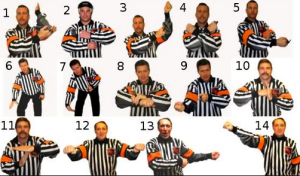 #3. Overregulated anarchy. For a sport that celebrates lawlessness and fighting like none other, there sure are a lot of confusing penalties in hockey. Some of them are pretty self-explanatory. “Elbowing,” “Eye gouging,” “Kicking”, “Headbutting,” and “Spearing” are pretty clear to me, though I still am baffled about when each qualifies as a minor penalty, major penalty, misconduct penalty, game misconduct penalty, match penalty, gross misconduct penalty, stacked penalty, and penalty shot. But I do know one thing for sure: I will understand the theory of relativity, how to cure cancer, the solution to the Israeli-Palestinian dispute and the meaning of life before I will understand “Icing.”
#3. Overregulated anarchy. For a sport that celebrates lawlessness and fighting like none other, there sure are a lot of confusing penalties in hockey. Some of them are pretty self-explanatory. “Elbowing,” “Eye gouging,” “Kicking”, “Headbutting,” and “Spearing” are pretty clear to me, though I still am baffled about when each qualifies as a minor penalty, major penalty, misconduct penalty, game misconduct penalty, match penalty, gross misconduct penalty, stacked penalty, and penalty shot. But I do know one thing for sure: I will understand the theory of relativity, how to cure cancer, the solution to the Israeli-Palestinian dispute and the meaning of life before I will understand “Icing.” #2. The focal point of the game is invisible. Even when I had much younger eyes, I couldn’t begin to follow the puck when watching hockey on TV. When you can’t see the puck, all there is to see are a mass of bodies chaotically gliding and colliding until punches are thrown or horns are sounded and celebrations ensue. I’m sorry, but a sport in which the focal point of the game is invisible to fans lacks a minimum requirement to be considered a spectator sport. Until they bring back the FoxTrax glow puck, I’m not going to stare at the screen for three hours pretending that I have a clue about what is happening.
#2. The focal point of the game is invisible. Even when I had much younger eyes, I couldn’t begin to follow the puck when watching hockey on TV. When you can’t see the puck, all there is to see are a mass of bodies chaotically gliding and colliding until punches are thrown or horns are sounded and celebrations ensue. I’m sorry, but a sport in which the focal point of the game is invisible to fans lacks a minimum requirement to be considered a spectator sport. Until they bring back the FoxTrax glow puck, I’m not going to stare at the screen for three hours pretending that I have a clue about what is happening.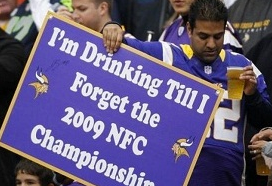 #1. Not their turn yet. The final reason I can’t get on the Wild bandwagon is this: As a long-suffering Vikings, Timberwolves, Twins and Gophers fan, I have to say that the Wild has or have (see what I mean) not suffered nearly long enough to have earned the right to succeed. In Minnesota, it is considered impolite to win championships after a mere 18 years as a franchise. The Twins waited 26 years. The especially snakebit Vikings have been in the hunt for over a half century. So it wouldn’t be fair for me to cheer for the Wilders so early in their fans’ misery cycle.
#1. Not their turn yet. The final reason I can’t get on the Wild bandwagon is this: As a long-suffering Vikings, Timberwolves, Twins and Gophers fan, I have to say that the Wild has or have (see what I mean) not suffered nearly long enough to have earned the right to succeed. In Minnesota, it is considered impolite to win championships after a mere 18 years as a franchise. The Twins waited 26 years. The especially snakebit Vikings have been in the hunt for over a half century. So it wouldn’t be fair for me to cheer for the Wilders so early in their fans’ misery cycle.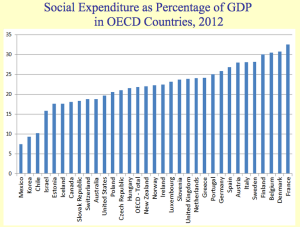 High as a kite from these clippings and the vindication they represent, DFLers run the risk of over-stepping, of pushing Minnesotans further than it they are comfortable going. As much as DFL politicians fantasize about bringing the social welfare
High as a kite from these clippings and the vindication they represent, DFLers run the risk of over-stepping, of pushing Minnesotans further than it they are comfortable going. As much as DFL politicians fantasize about bringing the social welfare